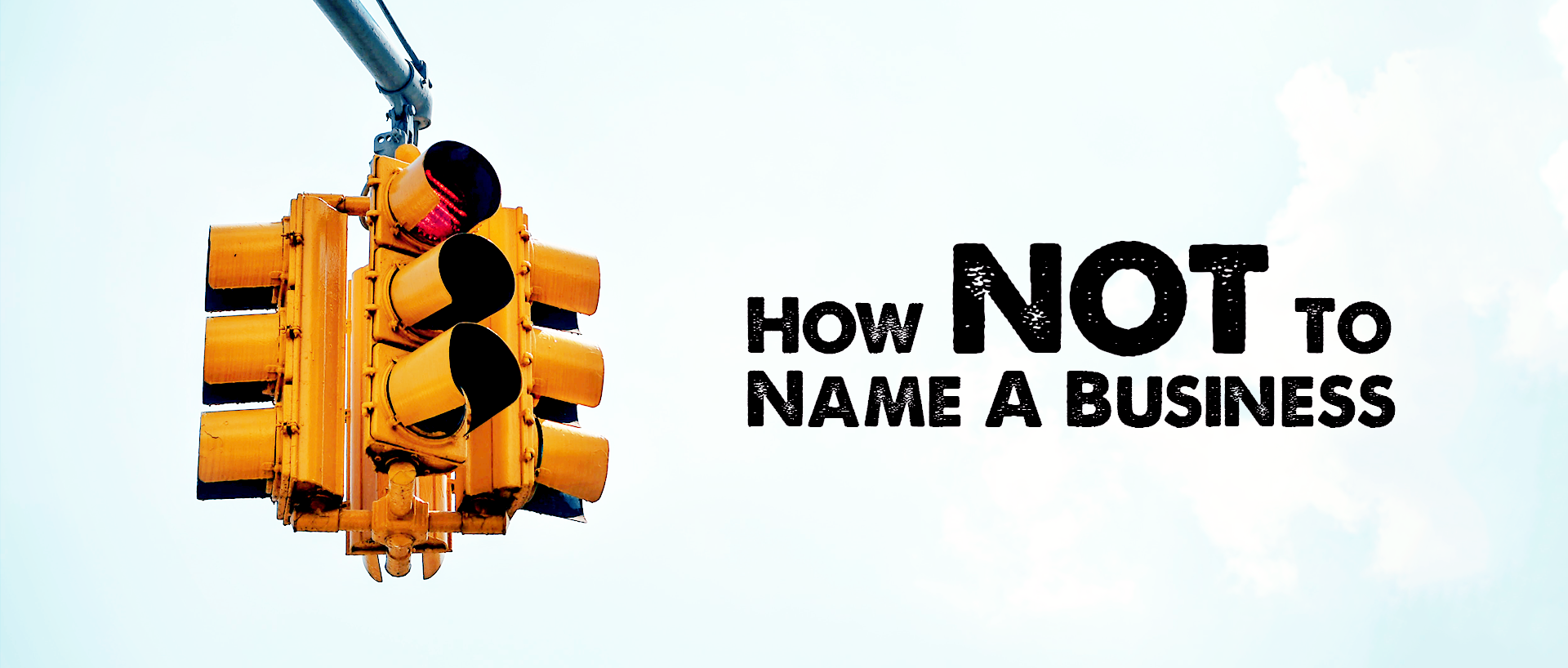Things To Watch Out For When Developing Your Company Name
When starting or levelling-up a business, one of the most important things in your business plan could be the name you choose. We’ve seen a lot of unfortunate ones over the years (here’s a list of some of the worst brand names out there) – but since we don’t want to name names, let’s just tell you how NOT to name a business.
Google is a pretty brilliant name for an Internet powerhouse. It’s derived from googol, a term suggested in 1920 by nine-year-old Milton Sirotta. His uncle, mathematician Edward Kasner, had asked Milton to name a very, very large number: one followed by one hundred zeroes.
It’s a great name, in part because Google must search a seemingly endless amount of information, but also because their business model itself is truly vast and expansive. However, if Google were a lingerie line, it might not work with the same effectiveness!
We’ve written before about how to name a business; here are some additional tips about how not to.
Avoid cliches “like the plague”
(That joke always makes me smile.) Keep an eye out for overused naming conventions, and choose to go another way. For instance, If I had a nickel for every Calgary area business with Bow Valley, Macleod, or Elbow River in their name… well, that’d be a whole lotta nickels. The same thing goes for generic name creation devices like -Tech, -Pro, -Tron, and -Corp. Also, the world has probably seen enough business that are the A1, Acme, Apex, Crown, Peak, Pinnacle, Summit, Top or Zenith of their field. Yikes. You can probably do better.
Avoid Misspellings
Whether it’s an attempt to be cute or clever, a word that’s difficult to spell, or a word with multiple alternate spellings. Potential customers might hear your company name, try to look it up online and wind up finding nothing merely because you chose to spell “custom” with a K.
Avoid Numbers
When people hear the name, it will be unclear whether you are using the numeral itself or spelling it out. This can be troublesome when they search for you. Naturally, there are notable exceptions like 3M and 7-Eleven, but these are huge companies with massive market penetration that makes them easy to find; a small start-up doesn’t have that advantage.
Be careful when coining
It’s certainly possible– just think of Xerox or Kodak. But if you’re inventing a brand new word to represent your business, and customers can’t infer a meaning from it, you’ll have to have have a good explanation for what it means, or a lot of money to promote it. This is tough to do, so you’ll probably need the help of professionals and a good budget. Not necessarily a “don’t,” just be aware that it takes a lot of commitment.
Avoid name similarity
Steer clear of names that sound similar to others or that are a play on an existing name, especially in the same field. When people think of your business, you don’t want them thinking of someone else’s business in perpetuity. An ice cream brand named Jen & Barry’s will never, ever emerge from the shadow of Ben & Jerry’s.
Be careful with humour
The name of your business sets a tone; do you want to be flippant? Maybe the answer is yes. After all, there is a pet groomer in Calgary called Doggy Style, and Topton, PA has Becky’s Curl Up N’ Dye salon (yes those are both real).
However, if Becky’s salon were next door to a funeral home, customers might not find it quite so funny!
Watch out for unintentional comedy
Look carefully for accidental double entendres, particularly when choosing your internet domain name. If you miss them, it’s guaranteed that some eleven-year-old out there will see it and make a huge joke of you! And remember with a domain, the typical first choice domain name is the name of the company, but that won’t work out so well for names like Children’s Exchange, American Scrap Metal, or Therapist Locator.
Good Advice on Naming your Business
You’ll do well to run your ideas past friends and family; they’re likely to give you an honest reaction, and they might catch a problem with a name that you missed. Ultimately, the name you choose greatly influences how customers view you, and can speak volumes about your understanding of the business you’re in.


